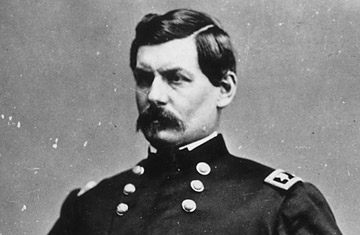
With the Civil War still raging across the country, 1864's contest was more a referendum on President Abraham Lincoln's leadership than an actual national election; Confederate states, after all, weren't taking part. George B. McClellan emerged as the Democratic candidate while Lincoln, a Republican, decided to run on the "National Unity" ticket. McClellan, a former General, ran on an anti-war platform, promising to end the conflict by negotiating with Southern leaders. But Lincoln's slogan "Don't change horses in the middle of a stream" resonated with Northern voters; he beat McClellan easily.
Bruised from the defeat, McClellan wrote to his mother, "I can imagine no combination of circumstances that will draw me into public life again." A railroad engineering consultant before the campaign, he lost that job too after his employers feared that a rocky relationship with Lincoln would hurt their chances of winning lucrative government contracts. So he decided to take the family on a European vacation, spending three and a half years abroad. He later served as a one-term Governor of New Jersey before dying unexpectedly in 1885 at the age of 58. His memoirs were published two years after his death; the reviews were harsh to say the least. The Atlantic Monthly noted plainly: "His egotism is simply colossal — there is no other word for it."